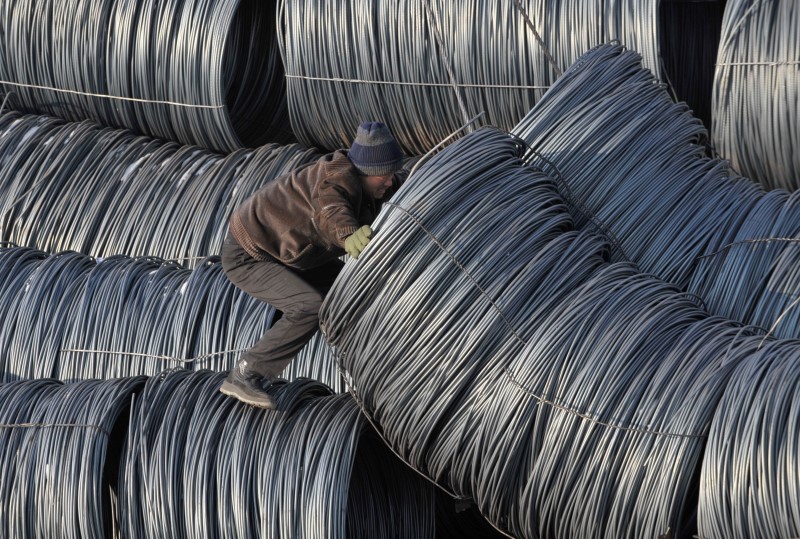By David Ljunggren
OTTAWA, March 21 (Reuters) - Canada's government, under pressure from domestic steel firms, is expressing concern to U.S. officials about a proposed Buy America policy that could cause heavy Canadian job losses, people familiar with the discussions told Reuters.
U.S. President Donald Trump, who wants firms to "Buy American and hire American," pledged in January to require new pipelines to use U.S.-made steel. steel firms fear Trump's plan could badly hurt a highly-integrated North American industry, and are pressing Ottawa to take action, the people added.
Canadian Foreign Minister Chrystia Freeland raised the issue with U.S. Commerce Secretary Wilbur Ross in their first conversation on March 9 and underscored worries about potential job losses, said a source familiar with the matter.
A statement issued after the meeting merely said that Freeland had highlighted "the mutual benefits of the integrated Canada-U.S. steel industry" but made no mention of the conversation about job losses.
In Washington, a Commerce Department official said Freeland had raised the Buy American issue during the call and that Ross noted her concerns. The official did not give further details.
Freeland spokesman Alex Lawrence said the minister would "continue to defend our steel workers" but gave no details.
Canadian diplomats and officials fanning out across the United States on a campaign to stress the benefits of the North American Free Trade Agreement (NAFTA) are also underscoring the importance of the steel sector and concerns about what could happen if the Buy American move went ahead, said a senior political source who was not authorized to speak about the matter publicly.
Records held by Canada's lobbying commissioner show that Joseph Galimberti, president of the Canadian Steel Producers Association, held 16 meetings with a total of 28 top government officials between Trump's Nov. 8 election win and Feb 24.
The CSPA says the industry, which has C$14 billion ($10.5 billion) in annual sales, directly employs 22,000 Canadians while supporting an additional 100,000 indirect jobs.
Galimberti said Canada's steel industry was integrated to a high degree with its U.S. counterpart and bought metallurgical coal, iron ore and steel scrap from its southern neighbor.
The prospect of losing thousands of well-paid jobs would be particularly painful for the Liberal government of Prime Minister Justin Trudeau, which says it wants to focus on boosting the middle class.
This is not the first time Canada and the United States have been at odds over steel. A stimulus bill introduced by the Obama administration in 2009 banned the use of foreign-made steel, upsetting Canada.
The two sides eventually signed a deal in 2010 that gave Canadian steel firms an exemption while allowing U.S. companies greater access to government procurement contracts in Canada.
Trump's proposed measure "completely obliterates years of work integrating steel production ... there are concerns, grave concerns," said one person familiar with the industry campaign.
